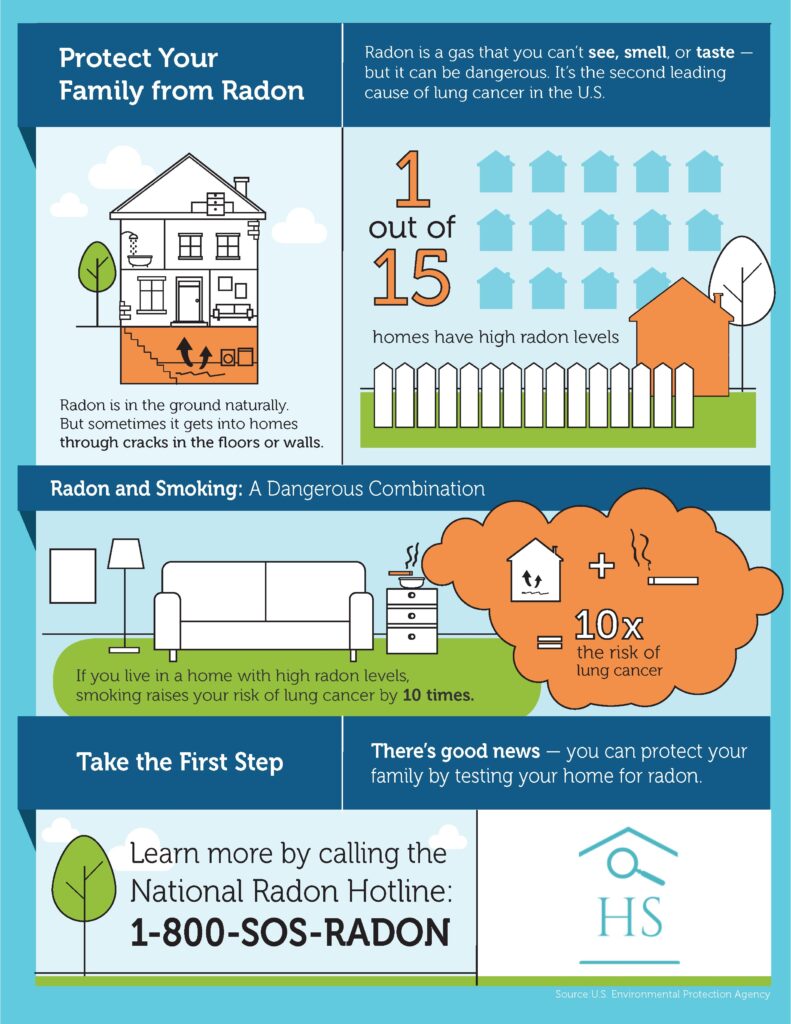According to a recent study conducted at the University of Georgia, 36% of homes in several Georgia counties have lethal levels of radon. The only way to know for sure if your home has a high level of radon is to have a radon test done. Please contact us. We can do radon testing with or without a home inspection.
What is radon?
Radon occurs naturally when uranium breaks down to form radon gas. Uranium is often found in high concentrations in granite and rocky soils. Radon is released into the soil and can easily enter a home through the foundation and well water. It can build up to dangerous levels inside homes, schools, and other buildings. Radon is the second leading cause of lung cancer in the United States, after tobacco smoke. Radon kills nearly 21,000 people each year, more than 800 of them in Georgia. Smokers are at an even higher risk of radon-induced lung cancer than nonsmokers.

What’s considered a high test result?
Above 4 picocuries per liter (pCi/L) is high. If your test result is over 4 pCI/L it is recommended that you test again with either a short-term (2-7 days) or long-term (3-12 months) device. If the second test result is over 4 pCi/L you should hire a professional to fix the problem.
What do I do if my results are high?
We recommend you search online for a reputable Radon Mitigation service. Radon reduction systems work. Some radon reduction systems can reduce radon levels in your home by up to 99 percent. Most homes can be fixed for about the same cost as other common home repairs. The cost of a mitigation system may vary according to the home’s design, size, foundation, construction materials and the local climate. Radon reduction systems average costs nationally are $1,200 with a range from $800 to $1500 common depending on house and market conditions.
Click here for the EPA’s Consumer’s Guide to Radon Reduction.
What else do I need to know about radon?
Below, we’ve shared the Environmental Protection Agency’s Home Buyer’s and Seller’s Guide to Radon. If you have any further questions, please feel free to contact us.
